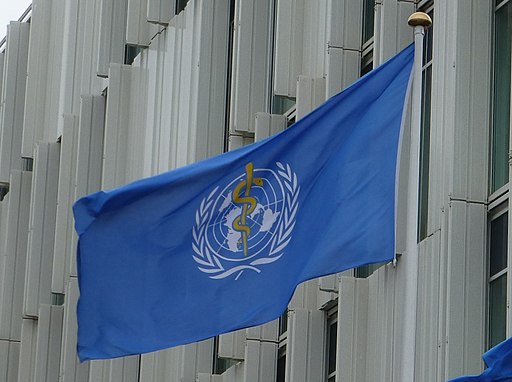
WHO launches “historic” multinational study to investigate most promising COVID-19 therapies
pharmafile | March 30, 2020 | News story | Research and Development, Sales and Marketing | COVID-19, Gilead, coronavirus, pharma, remdesivir
The World Health Organization continues to push forward in the global fight against the novel coronavirus, and has announced the enrolment of the first patients in a set of “historic” multinational clinical trials to investigate four of the most promising therapies against the pathogen.
The first participants were recruited in Norway and Spain, with further patients due to join the study. The trials, known collectively as SOLIDARITY, aim to build a base of clinical evidence for what have been touted as some of the most promising treatments against the disease. So far, the basis for the hype around these treatments has been limited or anecdotal, but it is hoped that more large-scale studies will help clarify their effectiveness in treating infection with virus.
Among these therapies are chloroquine and its derivative hydroxychloroquine, which have long been recognised for their antimalarial properties. The products were found to show benefit compared to a control group in treating novel coronavirus infection in a small study in France, and have received recent coverage as US President Donald Trump hailed them as a “game-changer” in the fight against the virus. In light of the hope placed in these treatments, hydroxychloroquine has just been rolled out to 1,100 COVID-19 patients in New York.
Also to be investigated is Gilead’s remdesivir. Originally developed for the treatment of Ebola, the drug was found to be ineffective in tackling the virus, but findings reported in 2017 detailed that its mechanism of action could be effective in treating coronaviruses, specifically SARS and MERS. The drug works by inhibiting the enzyme RNA polymerase, which is key in the ability of a virus to replicate.
There have been a number of reports of patient recoveries from COVID-19 after receiving the medication, particularly in the case of one 35-year-old male in the US who was administered the drug intravenously. So far, researchers seem to be primarily backing Gilead’s drug as the most promising of the touted candidates, but more data is needed to know for sure.
The trials will also examine antiretroviral drugs lopinavir and ritonavir. Their success in treating HIV is based in their inhibition of HIV-1 protease, and these drugs can also inhibit the cytopathic effects of coronaviruses by targeting a molecule which is instrumental in the replication of both these kinds of pathogen.
While these products have been touted as potentially impactful against the novel coronavirus, a recent study indicated that they were not significantly more effective in improving outcomes in patients with COVID-19 than standard care.
Another trial will also investigate the efficacy of lopinavir and ritonavir in combination with interferon-beta, a compound often used in the first-line treatment of multiple sclerosis.
While times of crisis understandably see a leap towards promising therapies, each must be properly assessed first in a clinical setting before being rolled out for widespread use. “It’s important that these medications are evaluated appropriately so we know what works and that we have the right data to support what works,” remarked Dr Maria Van Kerkhove, Head of WHO’s Emerging Diseases and Zoonosis Unit.
Dr Tedros Adhanom Ghebreyesus, WHO Director General, said at the launch of the trials that the organisation recognised the “desperate need for effective therapeutics”, stressing that “there is, currently, no treatment that has been proven to be effective against COVID-19.
“I’m glad that many countries have joined the SOLIDARITY trial that will help us to move with speed and volume,” he added. ”The more countries that sign up to the SOLIDARITY trial and other large studies, the faster we will get results on which drugs work, and the more lives we will be able to save.”
Matt Fellows
Related Content

Gilead’s Veklury recommended by NICE for COVID-19 treatment
Gilead Sciences has announced that the National Institute of Health and Care Excellence (NICE) has …

NICE expands access to Paxlovid for 1.4 million people at risk of severe COVID-19
The National Institute for Health and Care Excellence (NICE) has announced that it has expanded …

Moderna shares data from phase 1/2 trial for combination flu and COVID-19 vaccine
Moderna has announced positive interim results from the phase 1/2 trial of mRNA-1083, its investigational …








